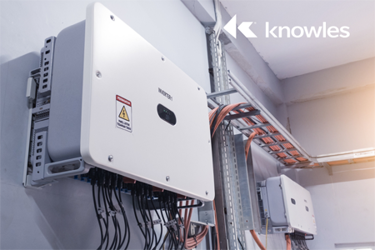The Electrical Engineer's Guide To Safety Capacitors

The Electrical Engineer's Guide to Safety Capacitors" is an essential resource for selecting passive components engineered to mitigate transient voltages and electrical interference (EMI), protecting both users and equipment. The guide details how these components are used on AC lines to form low-pass filters that attenuate high-frequency noise.
Safety capacitors are categorized into two main classes: Class-X (across-the-line, designed to fail short and trigger a fuse, mitigating fire risk) and Class-Y (line-to-ground, designed to fail open, minimizing electric shock hazards). These are further broken down into subclasses like X1, X2, Y1, and Y2 based on their pulse voltage withstand capability and rated voltage.
The eBook provides a side-by-side comparison of the two primary dielectric technologies: Ceramic (MLCC) and Film. Ceramic MLCCs are typically favored for Y1/Y2 roles due to their small size, low cost, and high-frequency performance. In contrast, Film capacitors are preferred for demanding X1/X2 applications, offering robust high voltage tolerance and crucial self-healing properties that ensure long-term stability.
A practical 7-step methodology is provided for selecting the appropriate safety capacitors for EMI filtering in the Power Factor Correction (PFC) stage of an AC/DC converter. The steps cover determining filtering requirements against regulatory limits (e.g., CISPR/FCC), matching voltage conditions, evaluating performance parameters (Capacitance, ESR, Dissipation Factor, Q Factor), and verifying mandatory safety certifications like UL and VDE. Finally, the guide explores the broad Knowles portfolio, featuring MLCC and film options like the SYX/UYX and MXT series, designed for diverse and critical applications.
Get unlimited access to:
Enter your credentials below to log in. Not yet a member of Wireless Design Online? Subscribe today.
